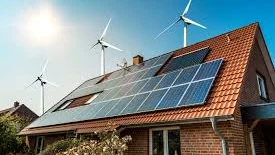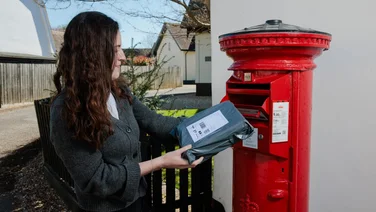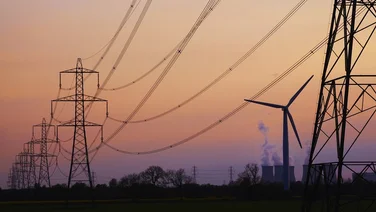- EPC band F homes could pay around £2,340 for dual fuel bills
- EPC band D, the UK’s most-common rating, could pay £250 more
- One in two homes are below the government’s target of EPC band C

People who live poorly insulated homes might have to pay as much as £700 more than they otherwise would as a result of the increase to Ofgem’s energy price cap.
According to research from the Energy & Climate Intelligence Unit (ECIU), homes with an Energy Performance Certificate (EPC) rating of band F could see average annual dual fuel bills of around £2,340 after the price cap was increased to £1,849 on 1 April due to damp.
This figure would be £700 more than a home with an EPC rating of band C and £450 more than one in band D, the UK’s most common EPC rating.

Get free insulation quotes
Answer a few quick questions, and our trusted installers will send you bespoke insulation quotes – for free.
According to the ECIU, the least energy efficient homes are in the private rented sector, with one in two homes (52%) falling below the government’s target of EPC band C, compared to less than a third (28%) of socially rented homes.
Government data also shows that private renters who receive housing benefits are more likely to live in the most expensive to heat buildings. Around 65% of private renters in receipt of housing support living in homes rated EPD band D or below, compared to 49% of those not in receipt of housing support.
Worried your home has poor insulation? Find out how much insulation costs here
Jess Ralston, head of energy, ECIU, said they are also more likely to live in a building with damp, as around 15% of private renters in receipt of housing support have a damp problem.
Ralston added that this is in comparison to fewer than one in 10 private renters who do not receive housing support (8%) and even fewer (6%) social renters that receive housing support.
In addition, 25% of those receiving housing support reported they could not keep their home warm, compared to 16% not receiving it.
Ralston said: “The last government promised to introduce and then delayed new minimum standards for landlords so that properties didn’t cost the earth to heat, and this government has pushed them back again to 2030.”
Around 60% of properties with cavity walls in the private rented sector have insulation, according to Ralston, compared to around 80% in the social rented sector. For solid walled properties, this is less than 10% for the private rented sector, compared to around 25% for socially rented sector.
“Those receiving housing benefit for their privately rented home could have been hundreds of pounds better off a year if these standards had come into force, or at least they could have afforded the heating rather than turning it off to make ends meet,” Ralston added.
“Private landlords could have been required to invest up to a few thousand pounds in getting their properties insulated, boosting jobs and lifting households out of fuel poverty.
“Instead, this lack of investment leaves many in more need of financial support and the UK more dependent on gas imports as heat from boilers simply leaks out of homes.”






